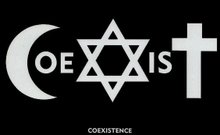The Parable of the Lost Sons
 What makes the temptation of power so seemingly irresistible? Maybe it is that power offers an easy substitute for the hard task of love. It seems easier to be God than to love God, easier to control people than to love people, easier to own life than to love life. Jesus asks, "Do you love me?" We ask, "Can we sit at your right hand and your left hand in your Kingdom?" (Mt. 20:21). We have been tempted to replace love with power.--Henri Nouwen
What makes the temptation of power so seemingly irresistible? Maybe it is that power offers an easy substitute for the hard task of love. It seems easier to be God than to love God, easier to control people than to love people, easier to own life than to love life. Jesus asks, "Do you love me?" We ask, "Can we sit at your right hand and your left hand in your Kingdom?" (Mt. 20:21). We have been tempted to replace love with power.--Henri Nouwen
Henri Nouwen was a Dutch priest and renowned author, who left behind his life of awards, accolades and speaking tours to live among and care for the mentally disabled. On one of his many travels, he experienced a chance encounter with Rembrandt's painting "The Return of The Prodigal Son."

At first glance, Nouwen experienced a mysterious draw to this painting, which lead him to engage in serious reflection on Rembrandt's interpretation of Jesus' timeless parable. Nouwen describes his feelings toward the painting upon his first encounter:
It had brought me into touch with something within me that lies far beyond the ups and downs of a busy life, something that represents the ongoing yearning of the human spirit, the yearning for a final return, an unambiguous sense of safety, a lasting home.
The result of his contemplation on both the biblical telling of The Prodigal Son and Rembrandt's unique perspective is his book, "The Return of the Prodigal Son: A Story of Homecoming."
He saw Rembrandt's portrayal of the Father's embrace of His runaway son as representative of God and Humanity and the peculiar expressions on the faces of the distanced bystanders representing our reluctance to get directly involved in what God is doing, in celebrating, embracing, and having compassion. Nouwen examines the three main characters of the parable: the prodigal son, the elder son, and the father. Nouwen finds himself in both sons and realizes the call to not only allow himself to be embraced by the father, but to become like the father, moving beyond the role of receiver of forgiveness and compassion to the the role of imparter of forgiveness and compassion to others. Nouwen notes that the painting, as well as the parable, could have been titled The Parable of the Lost Sons. His analysis of the elder son's "lostness"is simply brilliant. The elder son externally achieves the right behavior, but internally wandered away from the heart of his father. The elder son resents His father's compassion and unconditional love and forgiveness. which is at the heart of who the father is. Nouwen then translates the perspective of the elder son to how he himself has felt and how many in the church feel throughout times in their lives.
There is so much resentment among the "just" and the "righteous." There is so much judgment, condemnation, and prejudice among the "saints." There is so much frozen anger among the people who are so concerned about avoiding "sin." The lostness of the resentful "saint" is so hard to reach precisely because it is so closely wedded to the desire to be good and virtuous. I know, from my own life, how diligently I have tried to be good, acceptable, likeable, and a worthy example for others. There was always the conscious effort to avoid the pitfalls of sin and the constant fear of giving into temptation. But with all of that, there came seriousness, a moralistic intensity--and even a touch of fanaticism--that made it increasingly difficult to feel at home in my Father's house.
Nouwen's take on this parable and painting--the motives of each son and the father, how it relates to the church today, and the ambiguous ending that calls for the readers/viewers to make their own decision about how to respond to the Father--is filled with rich insight that will stay with me always. This book is truly a masterpiece, a book that I will treasure for the rest of my life.
And since this book is about the prodigal son parable, I thought I would include a clip from the movie, Jesus of Nazareth. It is absolutely my favorite cinematic interpretation of this parable. The filmmakers chose to set Jesus in Matthew's house, dwelling among sinners, while Peter and the other disciples stand outside, refusing to enter, lest they become "unclean." The parable of the prodigal son thus becomes an agent of reconciliation between Matthew (a prodigal son type) and Peter (the elder son type). It's a beautiful truth of the gospel.
Nouwen's take on this parable and painting--the motives of each son and the father, how it relates to the church today, and the ambiguous ending that calls for the readers/viewers to make their own decision about how to respond to the Father--is filled with rich insight that will stay with me always. This book is truly a masterpiece, a book that I will treasure for the rest of my life.
And since this book is about the prodigal son parable, I thought I would include a clip from the movie, Jesus of Nazareth. It is absolutely my favorite cinematic interpretation of this parable. The filmmakers chose to set Jesus in Matthew's house, dwelling among sinners, while Peter and the other disciples stand outside, refusing to enter, lest they become "unclean." The parable of the prodigal son thus becomes an agent of reconciliation between Matthew (a prodigal son type) and Peter (the elder son type). It's a beautiful truth of the gospel.














5 comments:
That clip from Jesus of Nazareth gave me goosebumps. That one part, its like Jesus is looking right at you, through the screen and down into your soul. I just got goosebumps again thinking about it.
Henri Nouwen was a brilliant man. I’m glad more christians have embraced his writings. I think the emergent camp is to thank for that.
Return of the prodigal son is the best of Nouwen's writings, second only to The Wounded Healer. Great analysis. Throwing in the Jesus of Nazareth clip was a nice touch too. That brought it home for me.
I thought Henri Nouwen turned out to be a fag?
You tell us Matty. You're the one who seems to be keeping tabs on every gay person on the planet.
I want to know something...
Are you truly such a hateful person or are you just having fun placing un-thought through, un-thought provoking comments on people's blogs and then seeing which one of us is silly enough to respond? :)
Angela, I think you hit the nail on the head. I can never decide if Matty is just that hateful or just a troublemaker, or even worse....both. Yikes!
Matty, please go back to boycotting my “heathen” blog, k?
Peter, Natalie, thanks for weighing in. That part of Jesus of Nazareth is my favorite scene, I cry every time. I think it’s more moving when you watch the events leading up to it, but it still gets me! :)
Post a Comment